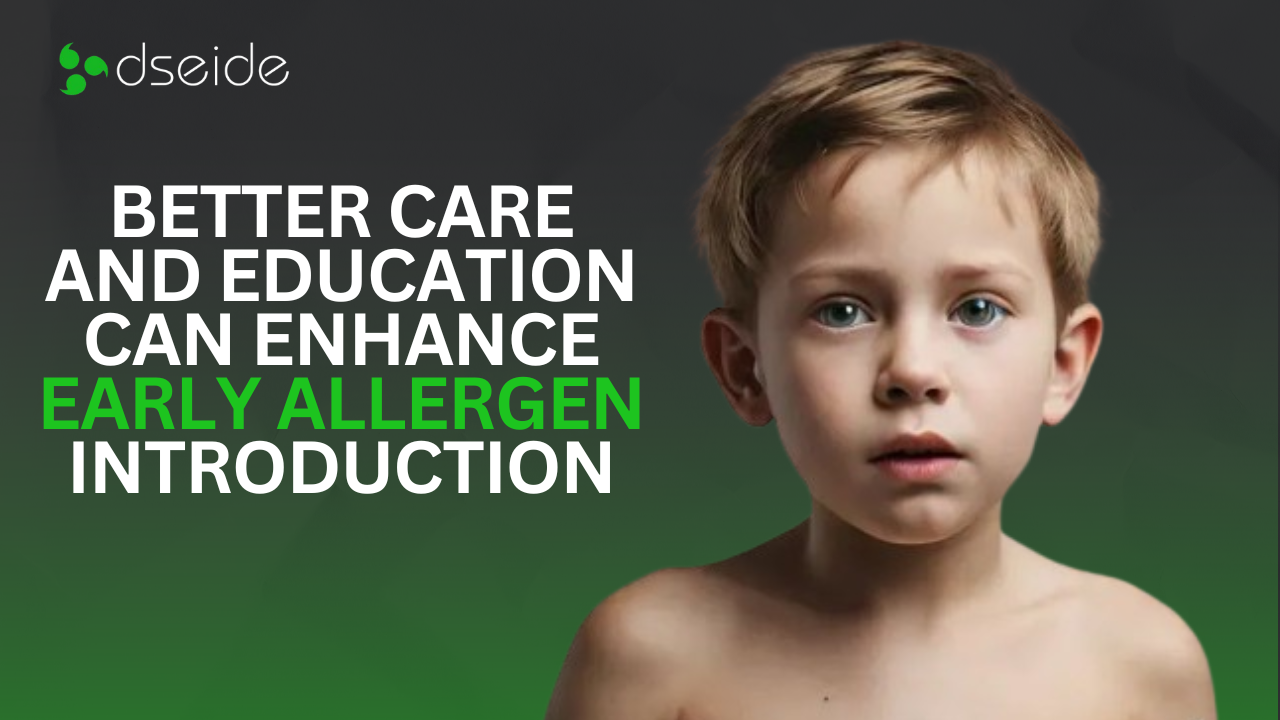Access to Care and Education May Improve Early Introduction of Allergens into Infant Diets
In recent years, the early introduction of allergens into an infant's diet has garnered significant attention in the realm of pediatric health. Evidence suggests that early allergen introduction can potentially reduce the risk of developing food allergies later in life. However, access to care and education plays a crucial role in how and when these practices are adopted. By examining the intersection of healthcare access and educational initiatives, we can better understand how to support families in implementing these beneficial dietary practices.
The Role of Early Allergen Introduction
Research has demonstrated that introducing allergenic foods, such as peanuts, eggs, and dairy, into an infant’s diet at an early age can help to build tolerance and reduce the likelihood of developing food allergies. This approach contrasts sharply with the previously held belief that delaying allergen introduction would prevent allergies. For example, the landmark LEAP (Learning Early About Peanut Allergy) study revealed that early introduction of peanuts significantly decreased the incidence of peanut allergies in high-risk infants.
Access to Healthcare: A Crucial Factor
One of the primary barriers to the early introduction of allergens is access to healthcare. Families with regular access to pediatricians and allergists are more likely to receive guidance on when and how to introduce potential allergens. For many, especially those in underserved communities, consistent access to healthcare professionals can be limited. This lack of access can delay or even prevent the implementation of early allergen introduction practices.
Healthcare professionals are instrumental in providing personalized advice based on an infant’s health history and risk factors. They can also offer reassurance and manage any potential reactions that might occur during the introduction process. Consequently, improving access to healthcare services is essential for ensuring that all families can benefit from these evidence-based practices.
The Power of Education
Education also plays a pivotal role in the early introduction of allergens. Parents and caregivers need clear, accessible information about the benefits and methods of introducing allergens into their infants' diets. Misconceptions and outdated beliefs can lead to hesitation or reluctance in implementing early allergen introduction practices. Therefore, educational initiatives are key in bridging this gap.
Programs that educate parents on the latest research, offer practical advice on introducing allergens, and address common concerns can empower families to make informed decisions. This education can come from various sources, including pediatricians, community health organizations, and online resources.
Bridging the Gap: Strategies for Improvement
Enhanced Healthcare Access: Expanding access to pediatric care through community clinics, telemedicine, and mobile health units can help reach underserved populations. Additionally, increasing the availability of allergists and specialists in diverse communities ensures that more families receive expert guidance on allergen introduction.
Educational Outreach: Developing and distributing educational materials tailored to different literacy levels and languages can make crucial information about allergen introduction more accessible. Community workshops, online seminars, and social media campaigns can also play a significant role in raising awareness.
Support Networks: Establishing support networks for parents, including peer support groups and counseling services, can provide ongoing guidance and reassurance. These networks can help parents navigate the early introduction process and address any concerns that arise.
Policy Initiatives: Advocating for policies that promote comprehensive maternal and infant care, including allergen introduction education, can drive systemic change. Support for such policies can lead to greater investment in public health education and services.
Conclusion
Access to care and education are integral to the successful early introduction of allergens into infant diets. By addressing these factors, we can help ensure that all families, regardless of their background, have the opportunity to implement practices that could significantly impact their children’s long-term health. Investing in healthcare access and educational resources is not only a step towards reducing food allergies but also a broader move towards equitable health outcomes for all.
For parents and caregivers, staying informed and seeking guidance from healthcare professionals are crucial steps in navigating the complexities of allergen introduction. With the right support and resources, the journey towards preventing food allergies can become a more manageable and successful endeavor.





